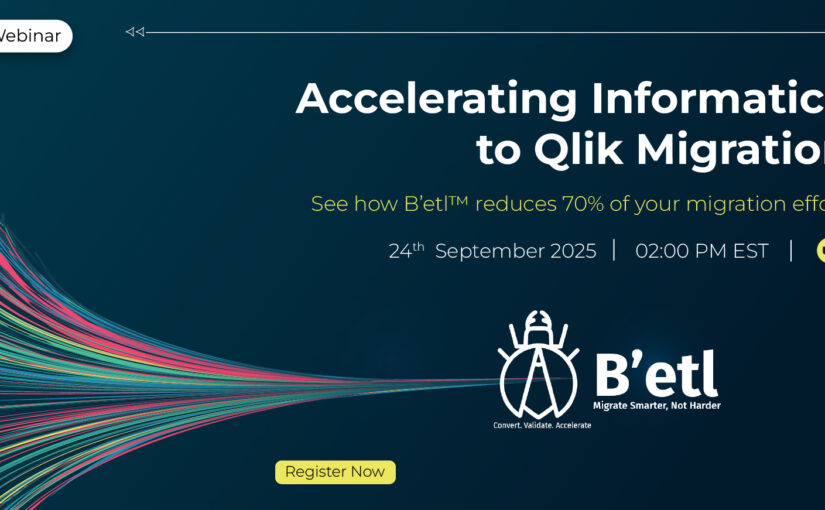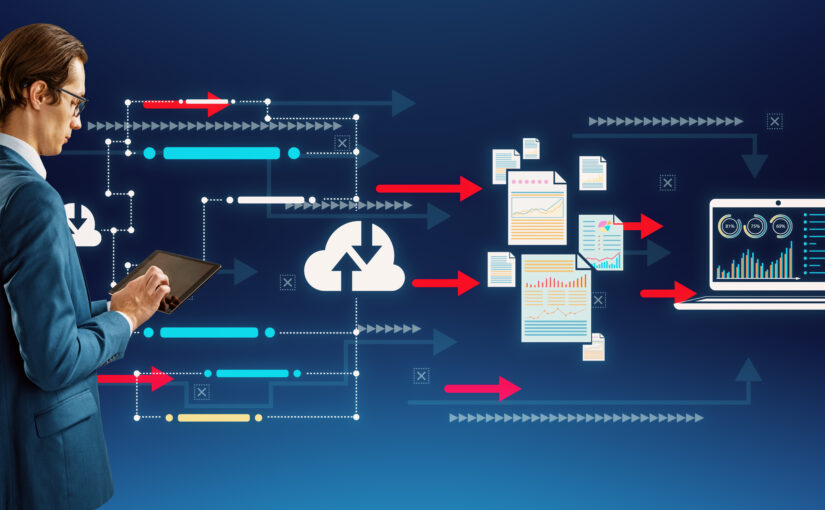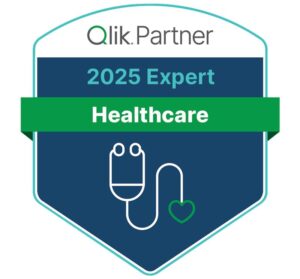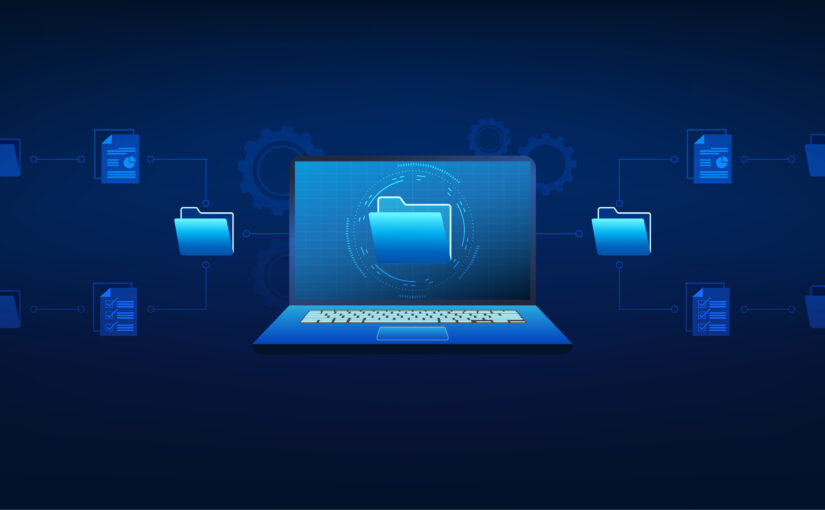In today’s data-driven world, staying future proof often means leaving behind legacy ETL platforms like Informatica PowerCenter, especially as they approach end-of-support. While such migrations are often perceived as cumbersome and high-risk, a growing body of tools and industry momentum shows that transitioning to Qlik/Talend is surprisingly smooth—when approached the right way.
Why the Push from Informatica to Talend (and Qlik) Makes Sense
- Modern Architecture & Openness
Talend’s open-source roots and cloud-native design offer unparalleled flexibility and innovation potential—an attractive contrast to proprietary, legacy systems. It integrates natively with AWS, Azure, GCP, Snowflake, and more. - Cost Efficiency & Scalability
Legacy tools like Informatica come with steep license and maintenance costs that grow with data volumes. Talend’s subscription-based model, in contrast, provides transparent, scalable pricing and significantly lowers total cost of ownership (TCO). - Unified Platform for Integration and Governance
Talend delivers ETL, data quality, cataloging, lineage, and API integration—all in one platform. This centralization speeds insights, simplifies operations, and enhances compliance across industries like BFSI, healthcare, and life sciences. - Confidence Amid Market Change
Informatica’s acquisition by Salesforce and push toward a cloud-only approach may threaten vendor neutrality and flexibility. Qlik’s open, interoperable stance positions it as a more stable, trust-oriented partner.
The Real Game-Changer: Artha’s B’etl (ETL Migrator)
Artha Solutions offers a purpose-built solution—B’etl—that transforms tedious, high-risk migrations into streamlined, neareffortless workflows.
- Automated Migration at Scale
B’etl converts thousands of legacy ETL jobs in seconds via a simple two-step process (“configure and click to convert”). Logic, configurations, and schemas are preserved, slashing manual QA.
- High Accuracy with AI-Powered Conversion
The tool offers automated discovery, logic-preserving conversion, visual validation, and QA-ready jobs—minimizing risk and retaining business-critical logic integrity.
- Significant Time and Cost Savings
Reports show migration timelines cut by up to ~80%, with cost reductions of 40–60% achieved through automation and modern architecture.
- Supported by a Full-Stack Solution
Artha’s “Artha Advantage” combines data integration, governance, and quality in one turnkey solution—boasting 80% reliability in reconciliation, 90% automation of complex mappings, and 40% reduced implementation time for MDM.
- Trusted Partner
As a top Talend and Qlik partner, Artha has delivered seamless, efficient migration outcomes for 300+ clients globally.
A Migration Journey That’s Straightforward in 3 Steps
Artha outlines a clear three-phased approach:
- Discovery & Assessment
Quickly catalog legacy workloads, detect redundancies, and prep for migration.
- Automated Conversion
Leverage AI-driven engines for precision transformation of business logic and workflows—with visual validation and QA-ready outputs.
- Validation & GoLive
Extensive reporting and impact analysis ensure compliance, alignment, and confidence during cutover.
Conclusion: Why It’s Easier Than You Think
- Automation removes the heavy lifting—manual rewrites, legacy expert bottlenecks, and prolonged timelines are replaced with click-to-convert simplicity.
- Modern architecture unlocks agility—Talend plus Qlik empowers hybrid-cloud flexibility, cost control, and compliance.
- A trusted, tested solution—Artha’s proven methodology and recognition by both Talend and Qlik ensure that transitions are smooth, predictable, and future-proof.
Final Thoughts
Migrations from Informatica to Qlik are no longer daunting — with the right partners and tools, they’re more like a strategic leap forward than a leap of faith. By embracing Artha’s B’etl and Talend’s modern stack, enterprises can shift quickly, confidently, and cost-effectively into a future of streamlined, AI-ready data operations.






